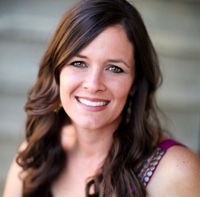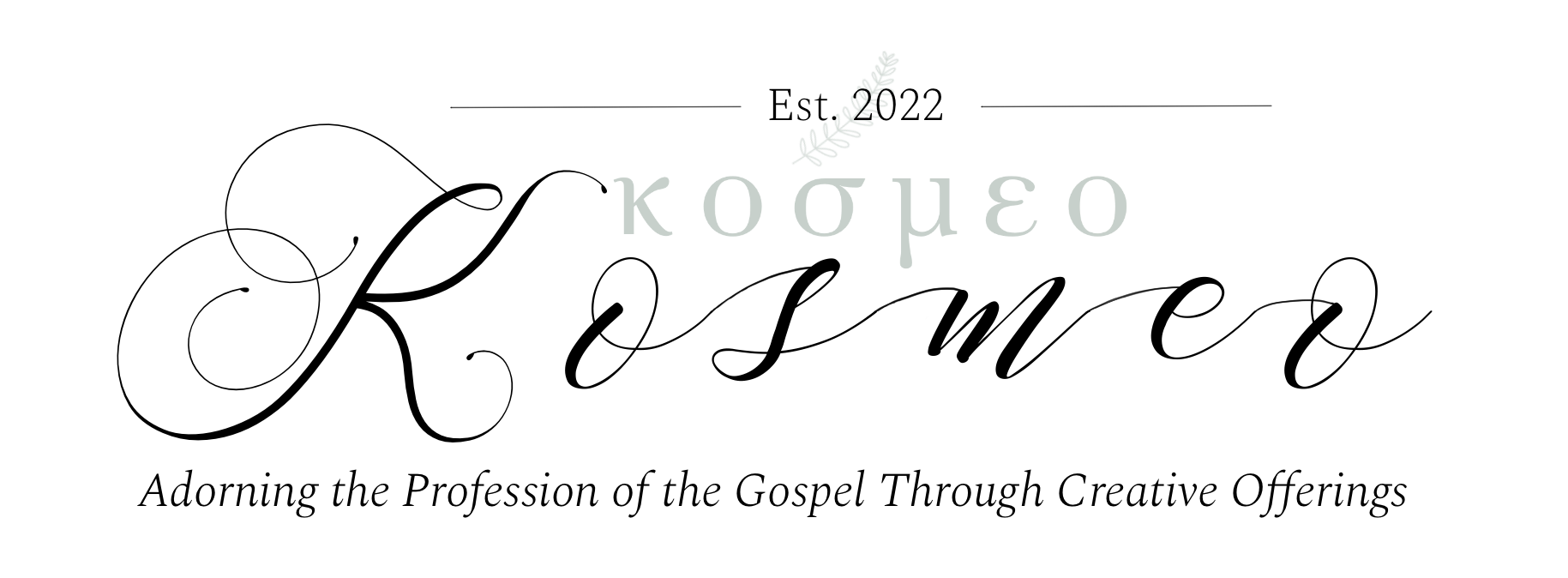by Joy Cherrick

Before my oldest child began first grade, I ran a small online business. I really enjoyed the intellectual challenge of problem solving with technology, managing a team, and expressing myself creatively through writing and graphic design. When my husband and I decided that it was time for me to put that work aside and focus on our family, I was a little disappointed. And yet, I knew that God was calling me to different work. So, I challenged myself to pour my creativity and intellectual energy into our home life. It didn’t take me long to find some inefficient systems needing an overhaul and some ways I could improve our home to run more smoothly.
This shift surprised me. I didn’t think I believed my home could provide the intellectual challenge that the business world provided, but I was wrong. I became excited to find ways to express my “business” skills and creativity in our home. My work in our home became less of a chore and a burden and more of a habit and a source of delight. I was able to find beauty and fulfillment in the seemingly mundane.
That shift happened years ago, and I can still see the benefits of taking on the work that is before me with diligence. One thing that I’ve learned is just how important work is to my daily rhythm. It is not something to groan and complain about (though that does happen); instead, it is realizing the privilege of being made in the image of God, then joining Him in the daily work of creating and maintaining a healthy home atmosphere. We were, after all, made to work, and we join God in His work as we do our everyday tasks, even those that are less than glamorous.
I can see the need for meaningful work in my children’s lives as well. Chores create a strong sense of belonging and significance and are a tangible way to show children “you belong” and “you make a difference.” Even though my children grumble about doing their daily chores, I can see their pride when they’ve finished a job well. It’s more in the “you’ll thank me later” category, but we certainly are developing a strong esprit de corps within the daily grind.
As Timothy Keller says in Every Good Endeavor, “without meaningful work we sense significant inner loss and emptiness. People who are cut off from work because of physical or other reasons quickly discover how much they need work to thrive emotionally, physically and spiritually.” (p. 23) I can see how valuable work is in my own life. The fullness of work has been energizing. Even with tasks that I used to despise (such as cooking), I’ve been able to find beauty and order and a routine. I’m thankful for the growth and education that has come as a result of this meaningful work.
Another change that came about in my life during this time was the decision to homeschool. Specifically, homeschooling lit a fire in me for learning and reading. I often hear moms say, “I’m not a reader.” I confess that I used to say the same thing. But, as of this writing, I have seven books next to my nightstand that I am actively reading through. Part of this change came out of necessity. My husband is an avid reader and, well, he was always reading, so I figured I’d join him. The other thing that spurred my enjoyment of books was that I had questions and I was looking for answers. I found that books were the most effective way to get my questions answered. I read to know.
I often get asked by friends with small children how I find the time to read so many books. My two most consistent times of day are during our afternoon rest time, and just before bed. Rest time can be anywhere from 1-2 hours long, depending on nap schedules and whether or not my older kids are engrossed in books or playing with toys, paper dolls, or coloring books. Over time, I learned the habit of reading a book just before falling asleep. I realized I could read through one book in one month by just reading 1-2 pages and then drifting off to sleep. Sometimes I’ll go to bed earlier if I’m really excited about a particular book. These short spurts here and there have added up to a lot of reading hours over the years.
I like to be reading at least one book in the categories of devotional, light-reading, and challenging. My spiritual or devotional books for the past few years have been by Elisabeth Elliot. I find that her books are easy to read, are heavy in scripture, and provide me with a truth to chew on, even if I only get to read one page in one sitting. Having a spiritual book in my rotation seems to provide me with a sense of relief and helps me remember to Whom I belong.
My light reading usually is for resting my mind from life’s challenges. This year I’ve been reading through the James Herriot series All Creatures Great and Small. This provides a mind-break and is healing to me.
Sometimes I’m not interested in fiction at all. And during these times I’m usually in the middle of a research project to find an answer to some question on my mind. Part of my personality is that I’m curious, so this is how I satiate my curiosity. This research can take me weeks or months as I plow through books looking for answers to questions. It seems to do the same thing for me as fiction; it transports me to another world.
Challenging books have been something new for me in the past few years. In the past, I didn’t pick up books that are really hard to read. The first book that was difficult for me to understand was Toward of Philosophy of Education by Charlotte Mason. The language was challenging and I had a lot of words to look up (though I skipped over many). I found that I could only read a few paragraphs or a page or two before needing to stop and figure out what I had just read. That book took me about nine months to read, and thankfully, in the middle of reading it, I joined a book club in my area that helped me process what I was reading.
It’s fun to watch how, as parents, our passions and joys are picked up by our children. There is no telling what our children will be “when they grow up,” but I’m excited to be on this learning journey with them. Centering my focus on our home and homeschooling my children has opened the doors to many worlds for me I just didn’t know existed.
References:
Every Good Endeavor by Timothy Keller
A Chance to Die by Elisabeth Elliot
A Path Through Suffering by Elisabeth Elliot
Obedience, the Glad Surrender by Elisabeth Elliot
All Creatures Great and Small (series) by James Herriot
Toward a Philosophy of Education (Home Education Series) by Charlotte Mason
Additional Book Recommendations for a Mother’s Bookshelf:
~Books about home life and education:
For the Family’s Sake and For the Children’s Sake by Susan Schaeffer MaCaulay
Mere Motherhood and Morning Time Handbook by Cindy Rollins
Teaching from Rest by Sarah Mackenzie
Educating the Wholehearted Child by Clay and Sally Clarkson
~Fiction books for escaping:
A Lantern in her Hand and White Bird Flying by Bess Streeter Aldrich
Pride and Prejudice and Mansfield Park by Jane Austen
~Challenging Books:
Orthodoxy by G.K. Chesterton
Narrative Life of Frederick Douglass by Frederick Douglass
Constitution 101: A Reader Published by Hillsdale College
About the Author

Joy Cherrick is a homeschool mom to her seven children. She loves learning about God’s creation, history and anything that points to truth, goodness and beauty. When she’s not sleep training the baby or educating her children using the Charlotte Mason method you can find her on her YouTube channel (Joy Cherrick – YouTube ) encouraging mothers about homeschooling, nature study and family life. She is the author of the Nature Study Hacking series (Nature Study Hacking – How to Get Outside and Use a Nature Journal), a curriculum designed to encourage families to get outside and use a nature journal. She is also the creator of the Naturalist Kids Podcast (https://podcasts.apple.com/us/podcast/naturalist-kids-podcast/id1529497969).
